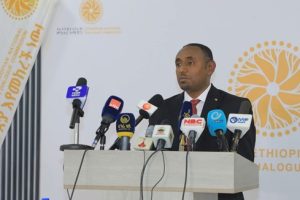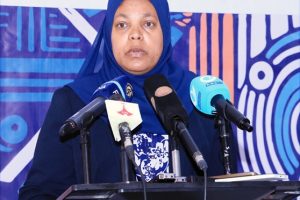
BY MENGISTEAB TESHOME
ADDIS ABABA— The Ministry of Health said that it is working on addressing the Neglected Tropical Disease (NTD) burden via supplying medication and treatment in collaboration with development partners.
Launching an event organized to discuss Social Sciences for Severe Stigmatizing Skin (5S) diseases, , National NTD eradication program coordinator Fekire Seyiefe noted that the Ministry of health is working to address NTDs such as trachoma, soil-transmitted helminthiasis, schistosomiasis, lymphatic filariasis, onchocerciasis (river blindness), podoconiosis, dracunculiasis (Guinea-worm disease), leishmaniasis and scabies.
As NTDs have long health impacts on communities, working diligently through supplying communities with high NTDs and distributing medical treatment as well as raising public awareness is quite important.
“Cooperation is critical in coming up with more successful and sustainable medication,” he said.
AAU’s Research and Technology Transfer Vice President Dr. Mitke Molla noted that Ethiopia is bearing among the highest disease burden. It is clear that the most affected ones are the poor living in remote rural areas, in urban slums and in conflict zones.
According to her, people affected by neglected tropical diseases (NTDs) are frequently the target of social stigmatization. When related to diseases, stigma causes an immense social and psychological burden, in terms of social exclusion, reduced quality of life and poor mental health. Furthermore, affected individuals may develop negative attitudes and feel ashamed or guilty because of their condition and may withdraw themselves from social participation.
In addition to these social and psychological consequences, health-related stigma can hamper the care and control of the concerned disease in areas such as health-seeking behavior, treatment uptake and adherence.
The 5S foundation will transform the health and wellbeing of people affected by these three conditions by identifying interventions informed by social science perspectives at the level of the patient, the community and national policy in Ethiopia.
The project is being implemented by the Department of Global Health and Infection at Brighton & Sussex Medical School (BSMS) in collaboration with Organization for Social Science Research in Eastern and Southern Africa (OSSREA), it was learnt.
The Ethiopian Herald February 2/2021




